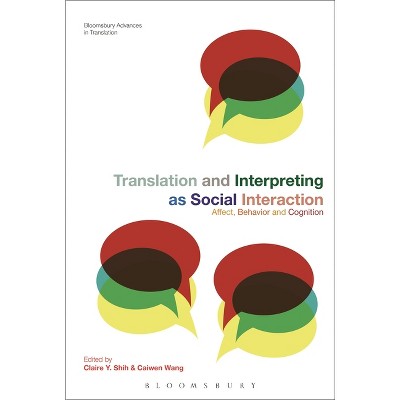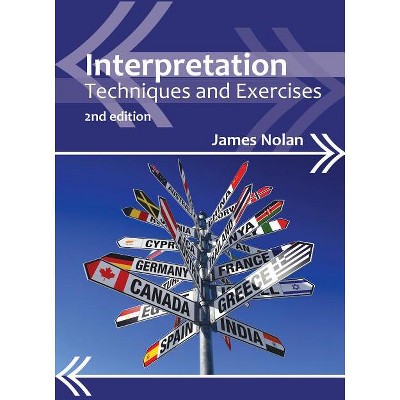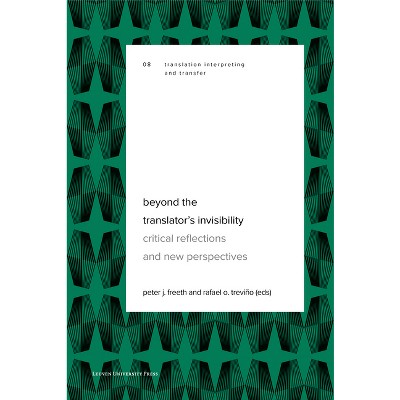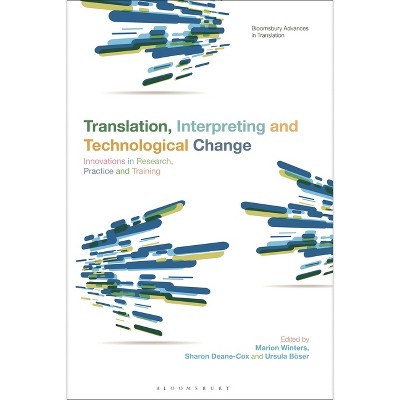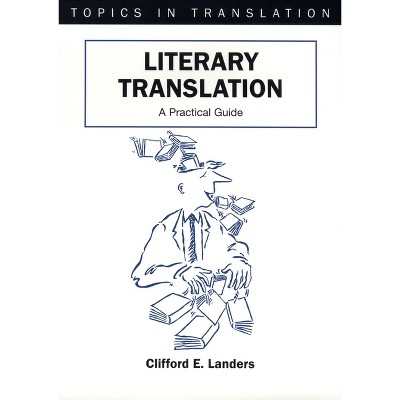Interpreting in Asylum Procedures - (Translation, Interpreting and Social Justice in a Globalised) by Hassan Mizori (Hardcover)

About this item
Highlights
- This book presents dialogist interpretation as an innovative method for examining interpreter-mediated encounters within asylum procedures, uncovering hidden layers of meaning by engaging with participants' internal dialogues.
- About the Author: Hassan Mizori is a Visiting Scholar at the University of Leeds, UK.
- 250 Pages
- Language + Art + Disciplines, Translating & Interpreting
- Series Name: Translation, Interpreting and Social Justice in a Globalised
Description
About the Book
This book presents dialogist interpretation as an innovative method for examining interpreter-mediated encounters within asylum procedures, uncovering hidden layers of meaning by engaging with participants' internal dialogues. It offers practical recommendations and calls for asylum reforms to enhance fairness and communicative equity.
Book Synopsis
This book presents dialogist interpretation as an innovative method for examining interpreter-mediated encounters within asylum procedures, uncovering hidden layers of meaning by engaging with participants' internal dialogues. It offers practical recommendations and calls for asylum reforms to enhance fairness and communicative equity.
Review Quotes
Hassan Mizori's Interpreting in Asylum Procedures: Dialogist Interpretation is a groundbreaking exploration of communication in high-stakes legal contexts. Through an innovative application of dialogism, Mizori illuminates the often-overlooked complexities of interpreter-mediated encounters, offering profound insights that challenge conventional practices and advocate for more just and effective asylum procedures.
This book critically examines the role of interpreters in asylum processes. Mizori's work underscores the complexities of communication in these high-stakes settings and provides thought-provoking insights for scholars, practitioners, and policymakers committed to addressing linguistic inequalities and fostering clearer understanding in asylum procedures.
This book has an inspiring and promising message for everyone involved in communicatively complex encounters like interpreter-mediated asylum interviews. Put simply: case workers, lawyers, interpreters and other professionals can improve their performance by learning more about the dialogic, collaborative, and exchange-focused nature of human sense making.
About the Author
Hassan Mizori is a Visiting Scholar at the University of Leeds, UK. With over 20 years of experience as an interpreter and linguist, he has taught translation at the University of Leeds and the University of Manchester and co-edited both the Oxford Arabic Dictionary and the Nederlands-Arabisch Dictionary (published by Radboud University Nijmegen). His research focuses on interpreter-mediated communication in asylum settings, particularly through dialogist interpretation. Adopting a multidimensional and interdisciplinary approach, he critically examines challenges in asylum procedures and explores pathways for reform.






